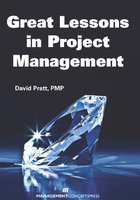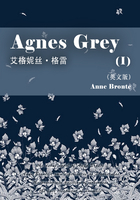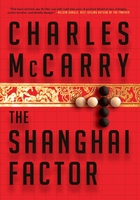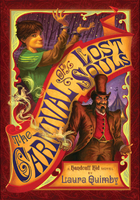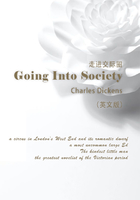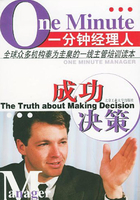It's hard to find a drink in eastern Kentucky. When I was in high school, there were rumors of a Coke machine in the clubhouse at the ninehole country club that spit out cans of free beer. There were stories you could get alcohol at the VFW, but nobody ever seemed to go there. Harlan County was dry, which meant that selling any intoxicating beverages was forbidden by laws as old as Prohibition. For most people, bootleggers proved to be the most convenient solution. They were closer than the drive to the nearest "wet" town, half an hour away, or to Virginia, which, while closer on the map, was over two mountains. Also, bootleggers didn't card.
Our bootlegger lived on Pine Mountain, in a gray trailer that sat in a gravel lot by the side of the road that could have been mistaken for a widening of the shoulder. The yard, or what there was of it, offered views out over the Cumberland River valley. I wasn't old enough to drive, but my friend Derek was, and he had the connection.
You turned off the main road into the little parking area between the house and a corrugated metal shed. You shut the headlights off (business here was done after dark). A man emerged from the rear of the house with a flashlight, which he kept aimed at the ground or into his palm. He sold Zima, Mad Dog, and Seagram's 7, and maybe other things, but I was a sophomore in high school in the mid-1990s, and my worldview was limited. You told him what you were looking for; he would disappear behind the shed, sometimes for quite a while, and finally return with a brown paper bag. "Y'all be good," he'd say and then disappear. Then we would turn the headlights back on and back out of the driveway.
We didn't drink very often, but when we did, we'd head up into the hills with chasers, jerky, and dip tobacco, park the cars around a patch of dirt, and light a bonfire out on the artificial prairie of an abandoned strip mine. We called this "camping." There were no bands, no cocktails, no cover charge, and it was all ages, pretty much all the time. You could see for miles across the tops of the mountains. No one lived anywhere nearby. It was about as far from any sort of culture as we could get.
My father, a Presbyterian minister, spoke of bootleggers with disdain, but he kept an intellectual distance from any personal judgment. For instance, I don't think he'd have been critical of the owner of a grocery store that happened to sell beer; if theological push came to shove, I don't think he'd consider bootlegging itself sinful. It was the flouting of the law, the servicing of something secret and illicit, that made bootleggers culpable. Still, the community had standards and expected their clergy to embrace prevailing ethical principles, and so I was raised to view bootleggers as ideologically corrupt as well as lawless.
Eastern Kentucky then was becoming less isolated, thanks to VCRs and cable television, but even to this day it's still the type of place where you're lucky after pushing "seek" on the radio to catch a station. Geographically, the town of Harlan is cut off by mountains that make it a day's drive to a shopping mall of any size. Each time a friend got his driver's license, a new world opened up, circumscribed by the Dairy Queen parking lot, an abandoned water plant covered with kudzu, the loading dock of an old coal tipple, and the strings of mostly empty roads in the valleys that connected them.
Only after living outside of Appalachia did I come to understand how unusual it was to grow up in a place with no liquor stores, no bars, and by extension, no restaurants. (It turns out that if people can't drink, they don't bother to go out to eat.) This may seem like a small thing, but it essentially precludes any evening activity outside the house. Nearly all of the places to eat in Harlan are fast-food chains. "Going out" might mean going to Pizza Hut, the only sit-down place with waiters. Maybe it's not surprising that kids tended to find their way more readily into sketchy situations, such as ditching class to go drink bootlegged Zima down by the river.
Most of my friends were patrons of the Pine Mountain bootlegger, but Smitty, the guitar player in my high school band Nicotine Jimmy Dog, preferred Mag's, a more mainstream option located conveniently in town. Mag Bailey sold liquor out of her house for nearly eighty years, just a few hundred feet from the elementary school. She was rumored to have escaped various prosecutions by paying federal excise tax on her sales, thus protecting herself from the most severe criminal penalties should things have gone south. It was also said that she bought off the local officials with well-placed bribes and long-term investments-she reportedly paid the law school expenses for some of the town's attorneys. I'm not sure that all of this is true, or that it explains everything, but everybody knew Mag and what she was up to, and she'd been operating with impunity for decades.
Mag lived on a street named after her. She had a paved blacktop circle behind an outbuilding next to the house-a kind of drive-through window-and kept an elderly man in her employ to run the shop. Mag's was open during the daylight hours, and I remember driving there as a fifteen-year-old on a bright fall afternoon with Smitty and picking up a pint of Southern Comfort before going to band practice. Mag's sold moonshine, too, but when you're not old enough to drive, you sort of want to start with something manageable.
Mag Bailey died in 2005 at the age of 101. Her passing was eulogized in the Lexington Herald-Leader, on the Jimmy Buffett fan website, and on NPR. Otis Doan, perhaps one of her commissioned lawyers, gave a folksy interview and filled in some token nostalgia about Mag's life and her old practices. Otis's son Sean was in my class at school and had the unusual habit of making bullying comments while he inhaled. Once I found Sean and another classmate pounding Budweisers in the bathroom at Creech Drugstore. They asked me if I wanted some and started inhaling the words "beer pressure" over and over again. These were the heady days of coming of age in a dry town, and to hear Otis Doan talking about Mag with such affinity prompted mixed feelings.
Five years after Mag died, the municipality of Harlan voted to go provisionally wet as part of a political compromise between the abstinent and pro-booze factions. Restaurants could serve alcohol if more than 70 percent of their sales came from food, though package sales would still be forbidden. The only restaurant slated to take advantage of this, El Charrito, famous for its Pollo Harlan, had explored opening a second location so as not to subject their teetotaling customers to the inevitable unruliness of a booze-sodden restaurant environment. Ken Moody, owner of a restaurant called the Western Sizzlin', said he wouldn't serve alcohol because he had "morals" (the business has since changed hands and the new owners are pursuing a license).
But the writing is already on the wall. The era of the bootlegger is dying. Around the country, blue laws restricting alcohol sales are relaxing. South Carolina, which used to mandate that spirits be served via miniature airplane bottles, retired that law in 2006 (though the tradition of putting red polka dots on liquor stores, once a way to flout a ban on signage, remains). Most states now allow liquor sales on Sunday. Washington recently privatized state-run liquor stores. In Utah, patrons no longer have to apply for membership to drink in bars, though alcohol in restaurants must still be hidden from view. Many states allow liquor sales in grocery stores. And just as it is becoming easier to buy and drink alcohol, prohibitive restrictions on making it are easing, which has prompted a gold rush of new distilleries.
"Craft distillery" has become the industry term for an independently owned, small distillery making no more than 100,000 gallons of spirit a year, though many produce far less (and some are no longer independently owned). According to Michael Kinstlick, who studied the boom in craft distilling for the American Distilling Institute, there were only six operating craft distilleries in the United States in 1990. By 2000, there were about 25. By 2012, more than 250 were operating in all but five states. That number is expected to climb to 1,000 in the next decade.
The Appalachian moonshiner, once working only by the light of the moon, now has his own reality television show. Another television show, set in a fictionalized Harlan County, had a plotline featuring a colorful bootlegger named Mags. And while I expect there are now far fewer Appalachian moonshine operations run for profit than there were a decade ago, there are hundreds of home distilleries popping up in cities, suburbs, and rural areas. A new generation of moonshiners is making whiskey not out of economic necessity or alcoholic scarcity, but out of affinity for the drink, or just curiosity. Websites with forums catering to amateur distillers have proliferated. Home-brew supply stores now sell distillers yeast and other items that could only be used for moonshining.
Mike Haney, who lives in Barlow, Kentucky, had a family history of moonshining. In early 2011, he posted a YouTube video of a reflux moonshine still he'd built himself out of copper that he called the Hillbilly Flute. He started receiving interest from other hobbyists and requests to build stills. That year, he started Hillbilly Stills. In the first year of operation, he built 20 stillheads. By his third year, he was building more than 170, had constructed a new 4,000-square-foot warehouse on the remainder of his property, and had hired nine employees to help ship stills to (mostly illegal) distillers around the country.
The same year that Mag died, I was back in Kentucky and got my hands on a gallon of moonshine from a bootlegger. I brought it back to Brooklyn and shared it with friends at parties. It was popular. As my supply started to run out, I said to David at his birthday party what I had been thinking for some time: Why don't we try to make it ourselves? Surely it couldn't be that hard. And it isn't terrifically hard to make some sort of distilled alcohol. After about a year of the two of us bootlegging and, yes, selling bottles on the sly, I started to get calls from people I didn't know who wanted to blog about the moonshine. Our sphere of influence had gotten larger than was comfortable. That's when David suggested we look into getting a license, only just then realizing what a fortuitous time it was for distilling, as newly relaxed laws made it easier than ever to start a commercial distillery in New York. Our plan was to keep doing what we were doing, at barely more than a hobbyist's scale, and thus make legal moonshine for friends and neighbors.
In April 2010, the first drops of whiskey legally distilled in New York City in nearly ninety years began to flow from an eight-gallon stainless-steel still in a 325-square-foot room in Brooklyn, otherwise known as Kings County Distillery, then the smallest distillery in the country. We quickly outgrew that space and relocated to a larger home at the former Paymaster Building of the Brooklyn Navy Yard. And as we've expanded, we've watched New York City's distilling community grow with us. Since we received our license, ten additional distilleries have opened in the borough of Brooklyn and two in the Bronx, all of us helping to return New York City to a place of prominence in the distilling world, a position it had held throughout the first three centuries of its existence.
It's a good time to be a glass of whiskey in America.
"In like Manner, since our Imports of Spirit have become so precarious, nay impracticable, on Account of the Enemy's Fleet which infests our Whole Coast, I would beg leave to suggest the propriety of erecting Public Distilleries in different States. The benefits arising from moderate use of Liquor, have been experienced in All Armies, and are not to be disputed!"
-GEORGE WASHINGTON to the President of Congress, 1777

